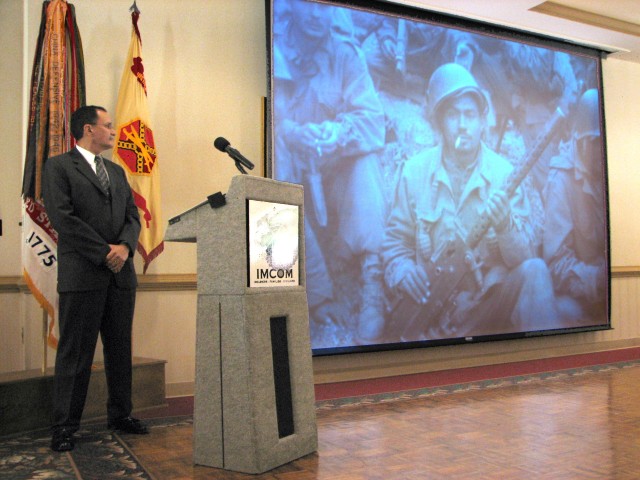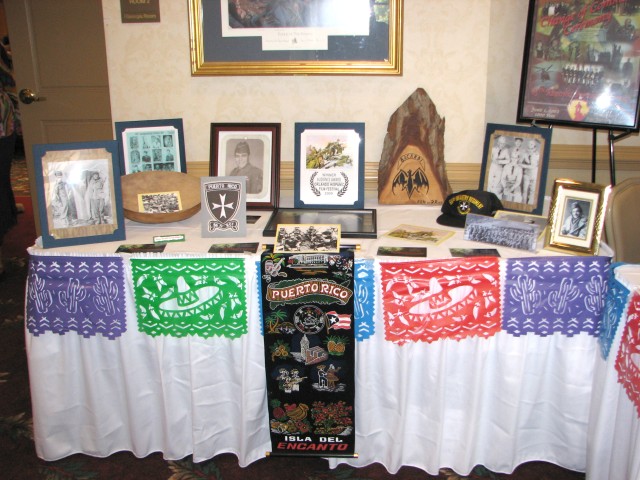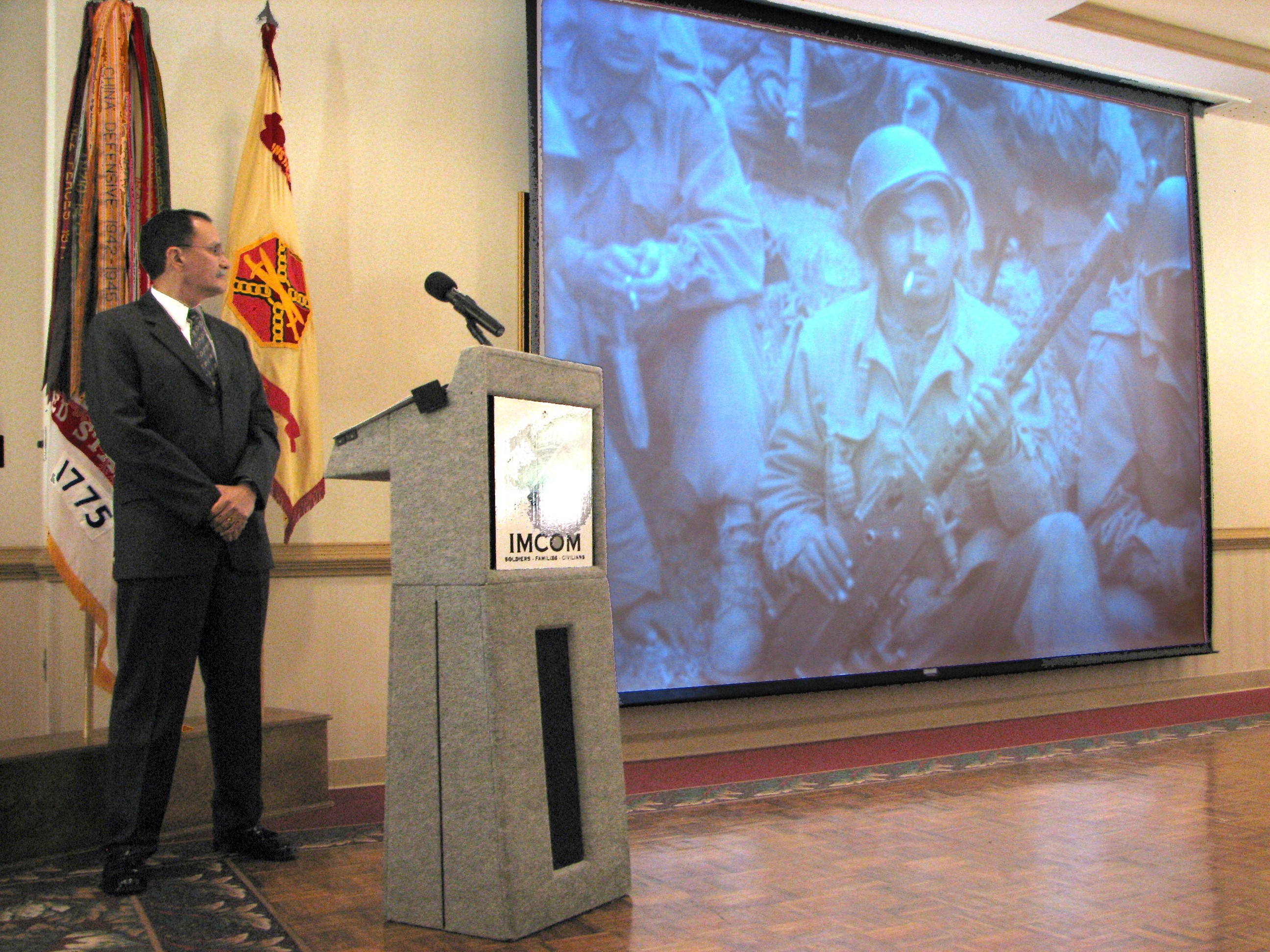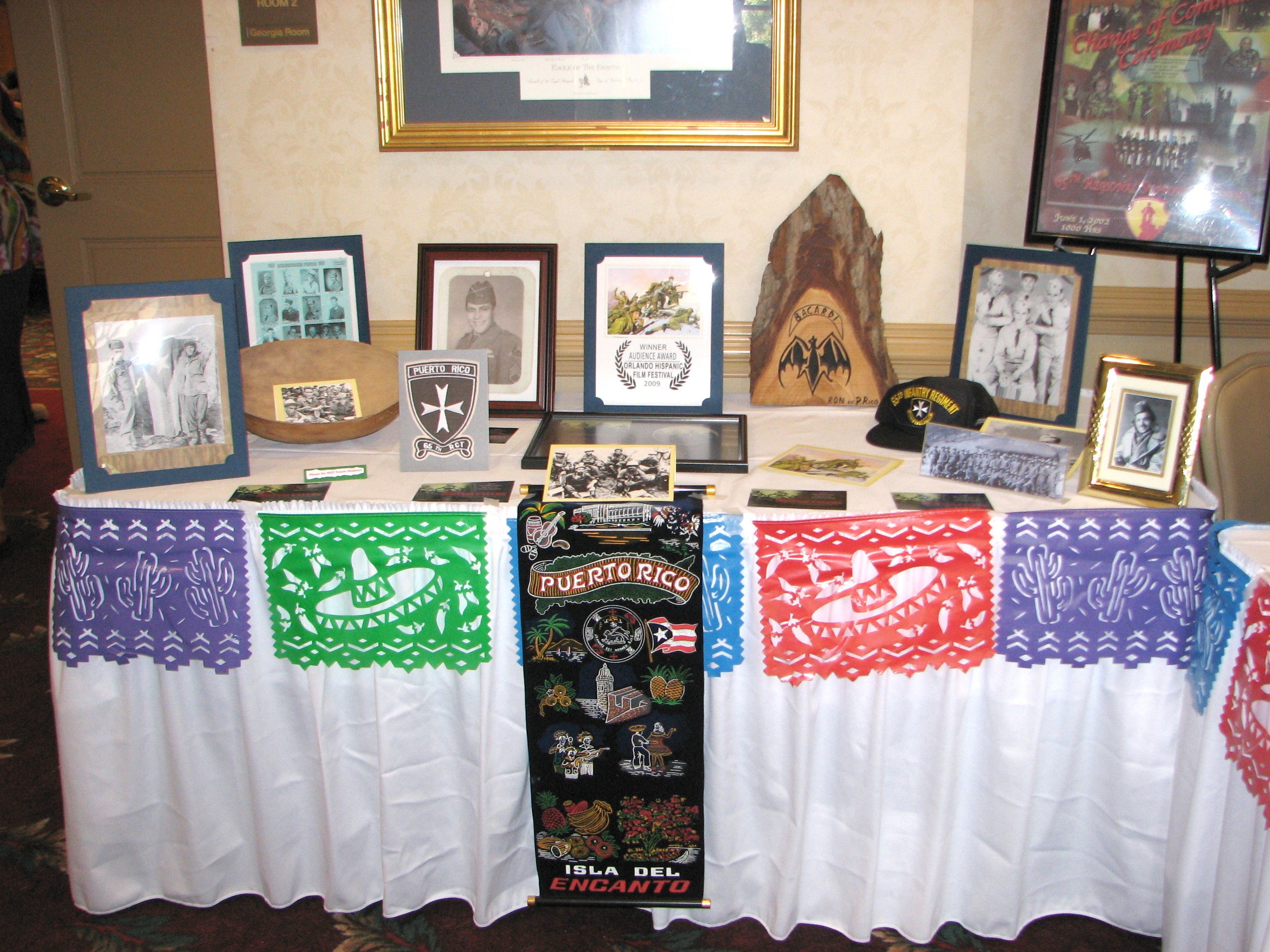In the movie "They Died With Their Boots On," actor Errol Flynn said, "Men die, but a regiment lives on because a regiment has an immortal soul of its own."
In the spirit of this quote, Fort McPherson and Fort Gillem added to the immortality of a decorated Hispanic-American military regiment during their National Hispanic American Heritage Month luncheon held Oct. 6 at The Commons at Fort McPherson.
The luncheon - themed "Heritage, Diversity, Integrity and Honor: The Renewed Hope of America" - focused on the Puerto Rican 65th Infantry Regiment (65th Inf. Reg.), "The Borinqueneers."
Lt. Col. (Ret.) Baltazar Soto, contracting officer with the Fort McPherson Mission and Installation Contracting Command Center and a historian on Puerto Rican Soldiers, served as guest speaker.
A researcher on the new Public Broadcast Service documentary "Borinqueneers," Soto shared much of the information he uncovered on these Soldiers and the 65th Inf. Reg. - which is still active - with the audience. Soto's own interest in Puerto Rican Soldiers began during the beginning of his 27 years of service as an armor officer.
As a cadet, he was introduced to the history of the Army and began to feel a need to research the past contributions of his fellow Puerto Rican Soldiers.
"I wanted people to know about what Puerto Rican Soldiers sacrificed," Soto said of his quest to discover their history. "Many of us served in the Army."
Though the desire to research Puerto Rican Soldiers stayed with him, said Soto, the effort took off around 11 years ago when he began in-depth research at the Fort McPherson Library.
Soto said the library proved an excellent source of information, especially due to its interlibrary loan program, which allowed it to bring in books from other military libraries for Soto to research.
Despite this, gathering information was difficult, he said.
"There were only a handful of books about Puerto Rican Soldiers," said Soto. "It (their history) was very fragmented because no one wanted to put it together."
Much of the difficulty came out of the largest mass court-martial of the Korean War, when 95 Soldiers of the 65th Inf. Reg. were court martialed over their failure to hold Hill 391 of Jackson Heights against the Chinese, Soto said.
The failure, he added, was not due to a lack of courage, but due to leadership issues, an opinion shared by an Army report released in 2001 that blamed the operation's failure on a shortage of officers and NCOs, poor tactics, ammunition shortages and communication problems.
"Their toughest fight was not on the battlefield," Soto said of the court-martialed men, who fought to maintain their innocence and respect.
The men were eventually pardoned, and a campaign to exonerate them is being pursued.
Rather than try to hide sore spots like the court-martial, Soto said people should try to gather it, as it also allows good deeds to come to light.
Soto highlighted some of these actions, such as the contributions Puerto Rican Soldiers made in World War I and World War II, as well as in the Korean War, where they endured heavy fighting and casualties.
Of their contributions, Gen. Douglas MacArthur, then commander of United Nation Forces in Korea, said, "The Puerto Ricans forming the ranks of the gallant 65th Infantry on the battlefields of Korea are writing a brilliant record of achievement in battle and I am proud to have them in this command. I wish that we might have many more like them."
Individually, Soto spoke of such Soldiers as Sgt. 1st Class Modesto Cartagena, the most decorated Puerto Rican Soldier in Army history.
On April 19, 1951, Cartagena captured an enemy hill by himself, earning the nickname "El Hombre Ejercito" or "one man Army," and the Distinguished Service Cross, the second highest Army decoration, a medal Soto feels should have been the Medal of Honor.
Although not as famous as Cartagena, Louis Emmanuelli, a member of one of the first groups of Puerto Rican commissioned officers, drew at least one person to the event: his grandson, Edward Hill. Hill, an environmental scientist with the U.S. Army Forces Command Environmental Office, said his grandfather, Emmanuelli, and granduncle, Felix, were both among the first Puerto Rican U.S. Army officers.
"They were always very pro-American," Hill said, adding he was very proud of them and their accomplishments.
While Hill did not serve as a Soldier, he has continued his Family's history of service by serving as an Army Civilian employee for 33 years. Soto said he hopes to chronicle all the service Puerto Ricans gave to America in a book he is currently working on.
Like his presentation, he hopes that it will prove to the rest of the country the dedication that Puerto Ricans have to the freedoms and values of the United States.
"I want people to realize that Puerto Rico, even though it is not a state, is still proud of the nation," he said. "We're proud to be American and proud of all our Soldiers."




Social Sharing